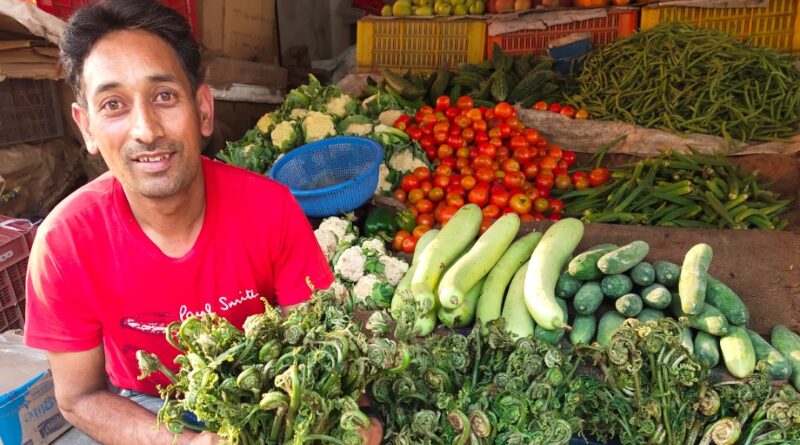Nature’s Gift: How a Wild Mountain Herb is Nourishing Lives and Livelihoods in Mashobra
In the serene hills of Mashobra, a humble wild vegetable called Lingud is doing more than just adding flavor to local meals—it’s becoming a source of joy, nutrition, and income for rural families.
As monsoon breathes life into the forests, villagers venture into the moist ravines and wooded slopes to gather bunches of this naturally growing herb. Known for its crisp texture and earthy taste, Lingud is in high demand at local markets. “The moment it arrives, it’s sold out,” says Rajendra Singh, a fruit and vegetable vendor. “People love it, and it’s completely organic.”
Unlike farmed crops, Lingud doesn’t need sowing or fertilizers. It grows wild, thriving in the untouched corners of nature. For generations, locals have harvested it during the rainy season, not just for their kitchens but also as a seasonal source of income.
But Lingud isn’t just tasty—it’s a powerhouse of nutrition. According to Ayurveda expert Dr. Joshi, it’s rich in vitamins A and B complex, iron, magnesium, potassium, and other essential minerals. “It’s especially beneficial for heart health, diabetes, and even malnutrition,” he explains. Early research by the Himalayan Institute of Bio-resource Technology (IHBT) in Palampur supports these claims, highlighting Lingud’s medicinal potential.
Known as Lingda in Uttarakhand, this wild vegetable is a reminder of the healing power of nature. Yet, as modern diets shift and younger generations lean toward packaged foods, Dr. Joshi worries that such natural treasures may be overlooked. “These vegetables from the lap of nature are not just food—they’re medicine,” he says.
For now, though, the people of Mashobra are celebrating the season with baskets full of Lingud, keeping alive a tradition that’s as nourishing for the body as it is for the soul.



